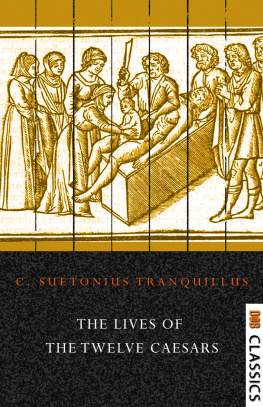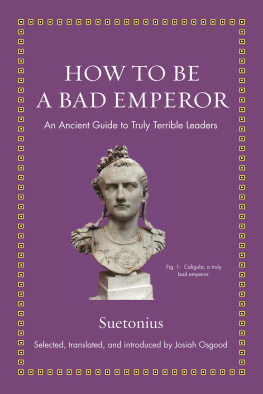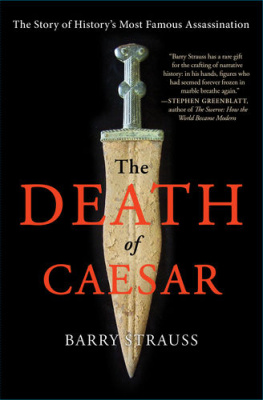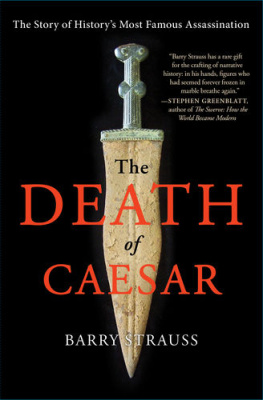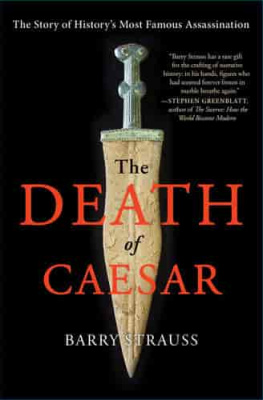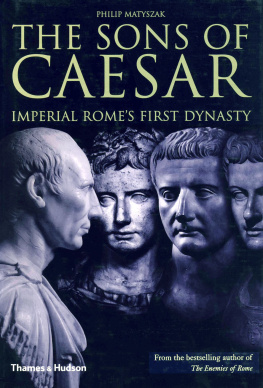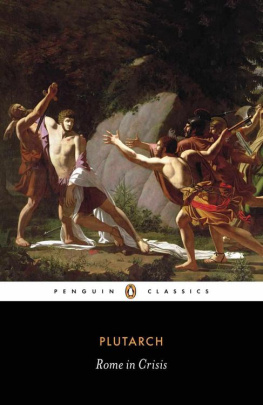BY THE SAME AUTHOR
The Last Princess: The Devoted Life of Queen Victorias Youngest Daughter
Empress of Rome: The Life of Livia

First published in hardback and export and airside trade paperback in Great Britain in 2012 by Atlantic Books, an imprint of Atlantic Books Ltd.
Copyright Matthew Dennison, 2012
The moral right of Matthew Dennison to be identified as the author of this work has been asserted by him in accordance with the Copyright, Designs and Patents Act of 1988.
All rights reserved. No part of this publication may be reproduced, stored in a retrieval system, or transmitted in any form or by any means, electronic, mechanical, photocopying, recording, or otherwise, without the prior permission of both the copyright owner and the above publisher of this book.
1 2 3 4 5 6 7 8 9
A CIP catalogue record for this book is available from the British Library.
Hardback ISBN: 978-1-84887-683-5
Trade Paperback ISBN: 978-1-84887-684-2
E-book ISBN: 978-0-85789-780-0
Designed by carrdesignstudio.com
Printed in Great Britain
Atlantic Books
An imprint of Atlantic Books Ltd
Ormond House
2627 Boswell Street
London
WC1N 3JZ
www.atlantic-books.co.uk
For my parents, with love
There is no worse heresy than that the office sanctifies the holder of it.
Lord Acton to Mandell Creighton, 5 April 1887

It is a mans pleasures, yes his pleasures, which tell us most about his true worth, his gravitas and his self-control. No one is so dissolute that his work lacks all semblance of seriousness; it is our leisure which betrays us... One of the chief features of good fortune is that it permits us no privacy, no concealment, and in the case of emperors, it flings open the door not only to their homes but to their private bedrooms and deepest retreats; every secret is exposed and revealed to rumours listening ear.
Pliny the Younger, Panegyricus 82

That old passion for power, which has ever been innate in man, increased and broke out as the Empire grew in greatness.
Tacitus, Histories II.38
List of Illustrations

Note on the text

In the interests of readability and accessibility, I have tried wherever possible to restrict footnotes to a minimum. To this end, I have not provided specific notes on quotations from Suetonius Lives of the Caesars: the present account simply contains too many. All unattributed quotations therefore are from Suetonius. In each instance, I have made use of the translation by J.C. Rolfe first published in London by William Heinemann in 1914 still, almost a century later, distinguished by its combination of accuracy, elegance and charm.


INTRODUCTION



E xactitude is not truth, wrote the painter Henri Matisse in 1947. Readers of the Roman historian Gaius Suetonius Tranquillus must surely agree. In his De vita Caesarum usually called in English The Lives of the Caesars or The Twelve Caesars which was probably published in the decade after the accession of the emperor Hadrian in AD 117, Suetonius sought instances of both: not all overlap. Exactitude is apparently one result of much of his careful fact-finding and evidence-sifting; many of his truths are verifiable by reference to other surviving primary sources. Equally obviously, there are omissions from the twelve Lives; there are also areas where the reader must exercise caution.
In intent Suetonius approach to biography is comprehensive, embracing both the public and private lives of his subjects, and he essays impartiality, quoting conflicting opinions, demonstrating consistently that arguments have at least two sides, abiding by Virginia Woolfs injunction that the biographer be prepared to admit contradictory versions of the same face.and political life of the state in war and in peace: chronological, annalistic, thematic, interpretative. His work is life-writing, then as now accorded lowlier status, susceptible to intrusions of the subjective and admitting the possibility of alternative truths: a bravura unmasking of the office-holder behind the office. Given the open-handedness of his approach, his refusal either to endorse or to condemn, the cumulative effect of Suetonius research retains an exhilarating, mobile quality reminiscent of Impressionist and Pointillist paintings: an emphasis on looking and seeing; a manipulation of light and shadow; passages of bold colour; a vigorous quest for truth; a certain deliberate liveliness unconstrained by academic convention.
In a survey of female biography written at the turn of the nineteenth century, Mary Hays wrote: The characteristic of the Roman nation was grandeur: its virtues, its vices, its prosperity, its misfortunes, its glory, its infamy, its rise and fall were alike great. It was a statement of its time, a reiteration of that grandiloquence which history painters of the later eighteenth century had sought to extract from Roman subjects. But successive generations of readers have agreed with Hays vision of Rome, and it is possible to enjoy Suetonius biographies as the expression of this grandeur coloured by a dozen different prisms, a compendium of glory and infamy, virtue and (notably) vice.
No account of Romes twelve rulers from Julius Caesar to Domitian can escape the long shadow of Suetonius. To attempt to do so would be contrary: that has not been my intention. The present work revisits Suetonius 1,900-year-old survey in acknowledgement of the immense riches both of its subject matter and of the authors treatment. I have not attempted to imitate my starting point, which would not be possible, nor to offer a commentary on it, an academic appreciation or a riposte. Rather the present work, like Suetonius, looks at the breadth of its subjects lives in an effort to uncover the human face of eminence and snapshots of vanished moments which are utterly remote from our own experience but intermittently familiar. Only implicitly does it address Lord Actons famous assessment of the connections between access to power and personal corruption which are all too evident in several Caesars spectacular failings.
Instead, the present Twelve Caesars, informed by additional primary sources and associated secondary material including paintings, revisits aspects of that earlier magnum opus in an effort to create for the generalist reader portraits which recall telling facets of twelve remarkable men: the political seen through the personal, the private impulse exposed to public scrutiny, even the history of their histories, which expresses another kind of truth. None of these portraits is exhaustive; none is encyclopedic. None aims primarily to titillate, none to instruct or offer moral exempla. Material is arranged by turns thematically and chronologically, a loosely knit garment, the intention to cast light on the origins, nature and impact of lives and careers which cannot otherwise be satisfactorily confined within a book of this length. Each of these vignettes, I hope, explores the creative fact; the fertile fact; the fact that suggests and engenders. The present work is an entertainment, and will have succeeded in its aim if a single reader is inspired to return to that earlier, justly celebrated
Next page


